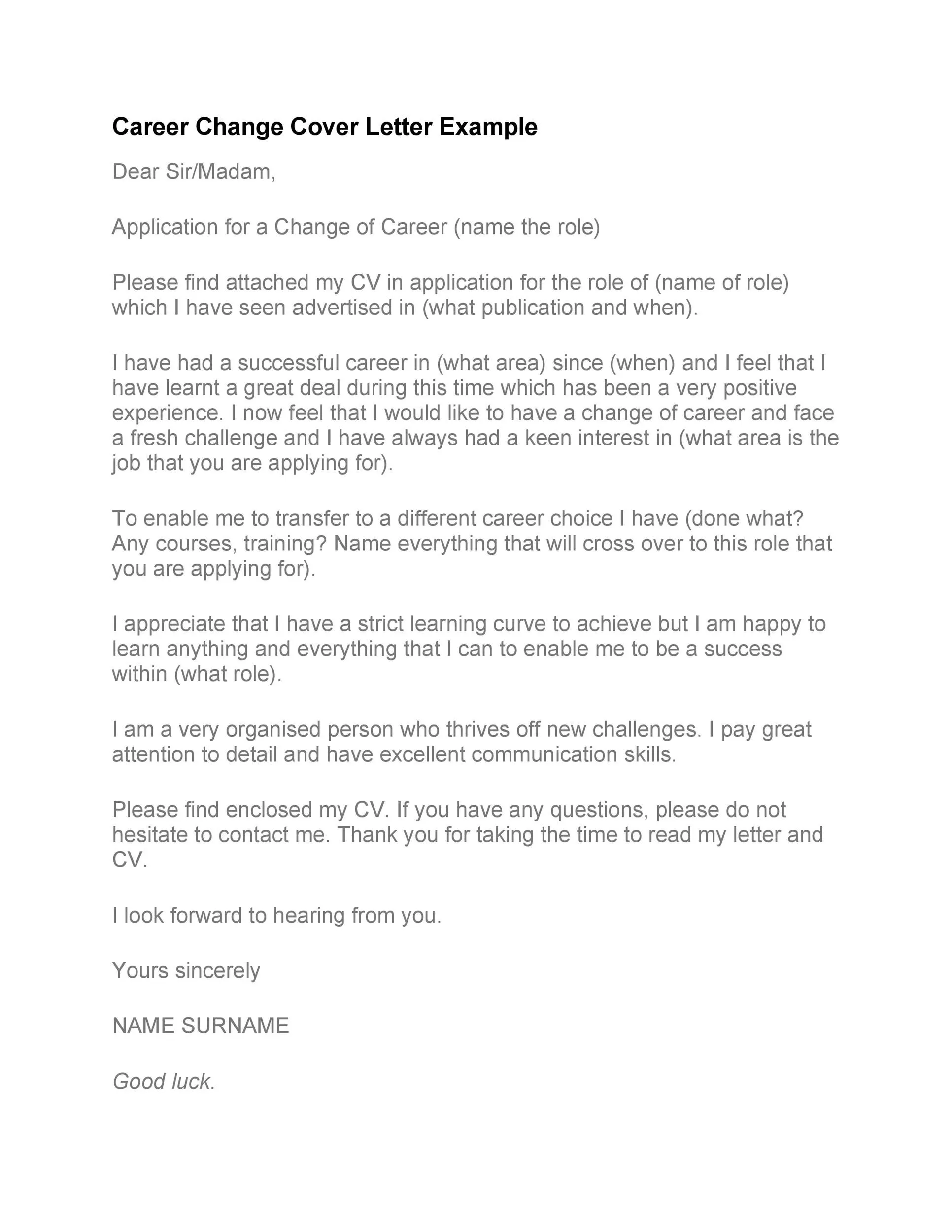Crafting Your Career Change Cover Letter
A career change can be a significant life decision, and your cover letter is your first impression. It’s not just a formality; it’s your chance to persuade a hiring manager that your skills and experience, despite being from a different field, are valuable. This guide offers a detailed approach on how to craft a sample cover letter for career change. It’s about more than just listing your past jobs; it’s about strategically framing your experience, highlighting transferable skills, and clearly communicating your enthusiasm for the new role. Think of it as a compelling narrative that bridges the gap between your current and desired career paths, positioning you as a strong candidate. A well-crafted cover letter provides context, explains your motivations, and makes your career change compelling to potential employers.
Highlighting Transferable Skills
One of the most important aspects of a career change cover letter is highlighting your transferable skills. These are the skills you’ve gained in previous roles that are relevant to the new position. For example, if you’re moving from project management to a marketing role, highlight skills like organization, communication, leadership, and problem-solving. These skills are valuable across various industries and can be easily transferred. In your cover letter, clearly identify these skills and provide specific examples of how you’ve used them in the past. This helps the hiring manager understand the value you can bring to their team, even if your previous experience is not directly related to the new job. This approach reduces the perceived risk associated with hiring someone from a different background.
Identifying Relevant Skills
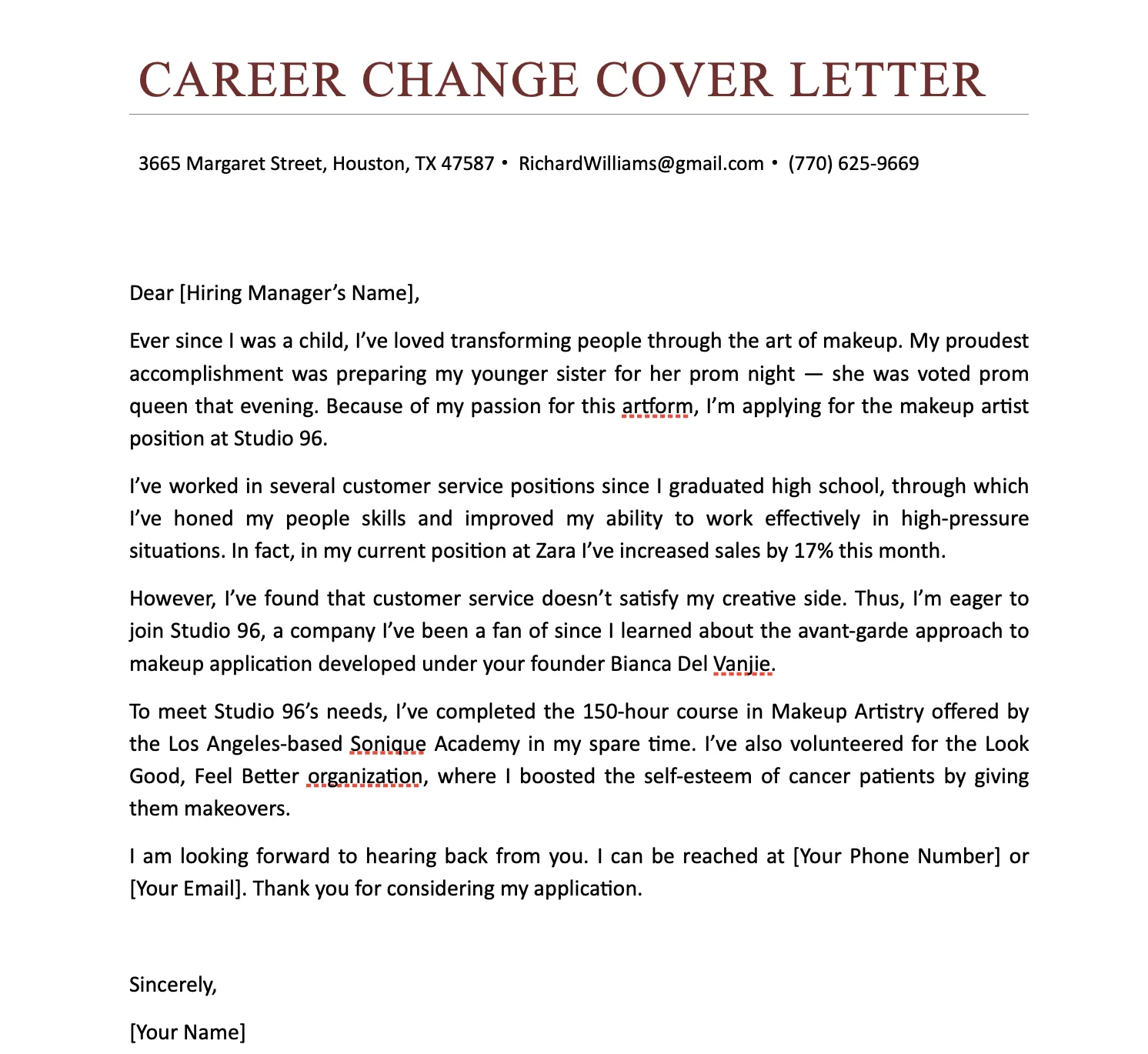
Beyond transferable skills, you need to identify and emphasize the skills that directly align with the new role. Carefully review the job description and identify the key skills and requirements the employer is seeking. Do you possess experience with project management tools, marketing automation software, or specific programming languages? If so, be sure to mention it, even if your experience is self-taught or from a non-traditional setting. It’s about demonstrating how you’ve applied these skills and how they can benefit the company. Mention any training or certifications that show your commitment to acquiring the skills needed for the new role. This makes your application stronger, as it shows your dedication to being successful in the role.
Quantifying Achievements for Impact
To make your cover letter truly impactful, quantify your achievements whenever possible. Instead of saying “Managed projects,” say “Managed projects resulting in a 15% reduction in project costs and a 10% increase in on-time project delivery.” Numbers and data provide concrete evidence of your abilities and make your claims more credible. When describing your accomplishments, use the STAR method (Situation, Task, Action, Result) to provide context and show how you achieved specific outcomes. This approach helps you to present a compelling and results-oriented narrative that resonates with hiring managers. By using quantifiable achievements, you prove that your skills are not just theoretical, but have tangible value.
Showcasing Your Passion and Motivation
A career change is driven by a desire for something new. Your cover letter should reflect this passion and motivation. Explain why you are changing careers and why you are interested in this specific role and company. Avoid generic statements and instead, focus on the specific aspects of the role and company that appeal to you. Demonstrating a genuine interest and enthusiasm for the opportunity makes you stand out from other candidates. Show that you’ve done your research and that this isn’t just a job but a step toward your goals. Expressing your enthusiasm helps the hiring manager see you as someone who is excited about joining their team and committed to long-term success.
Understanding the Hiring Manager’s Needs
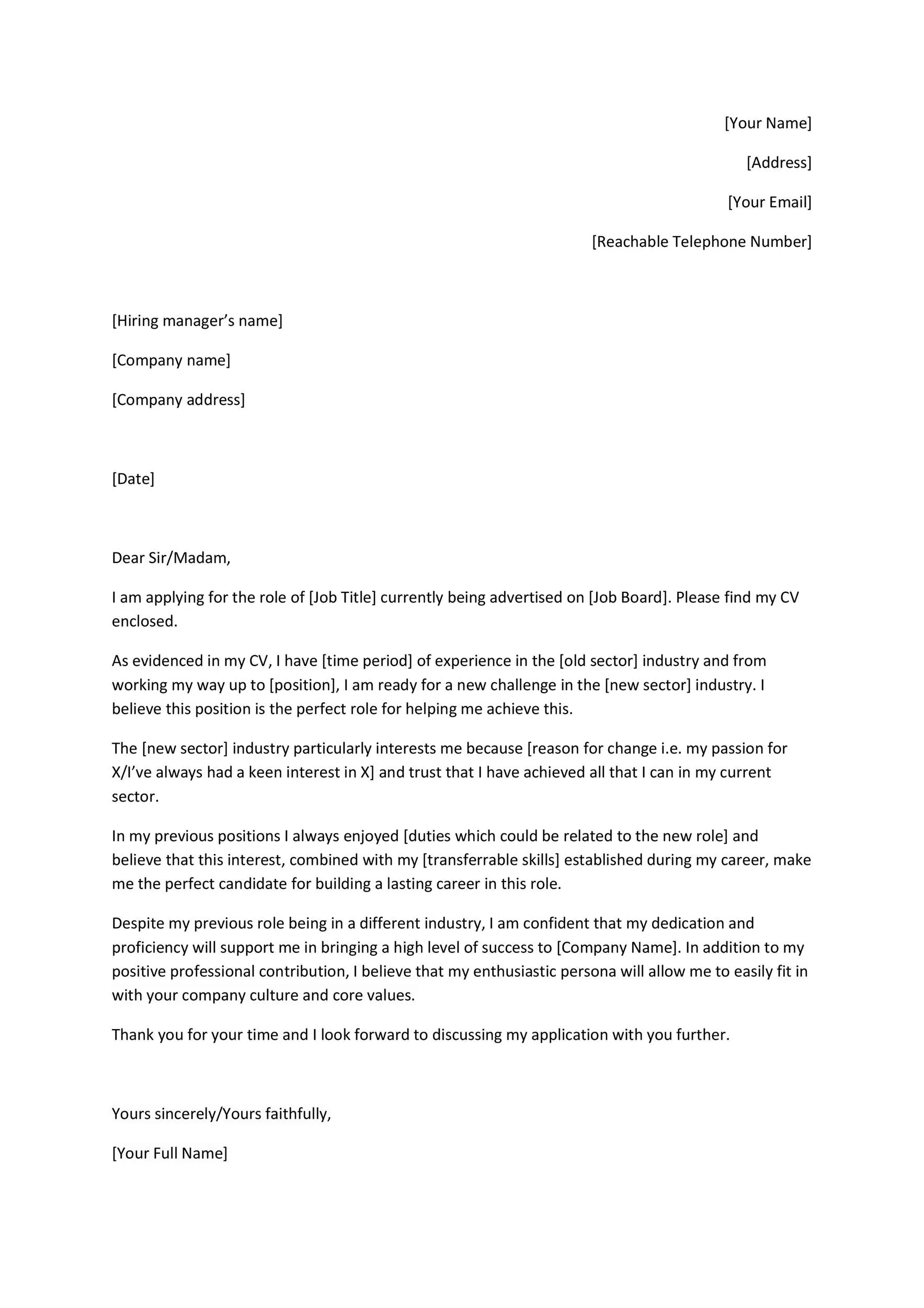
Before writing your cover letter, put yourself in the hiring manager’s shoes. What are their priorities? What problems are they trying to solve? Tailor your letter to address their specific needs and concerns. Research the company’s values, mission, and recent achievements. Use this information to demonstrate how your skills and experience align with their goals. It’s not enough to just say you’re qualified; you need to explain how you can contribute to the company’s success. Make it clear why you are a valuable asset who can fulfill the requirements of the role. This personalized approach makes your cover letter more effective and shows that you’ve thought carefully about the opportunity.
Researching the Target Company
Thorough company research is essential. Visit the company’s website, read industry news, and check out their social media profiles. Learn about their products, services, and recent projects. Identify any challenges they may be facing. This research will help you tailor your cover letter to their specific needs and demonstrate your genuine interest. You can also use this information to highlight how your skills and experience can contribute to their success. In your cover letter, refer to specific initiatives, projects, or values of the company to show that you have carefully considered how you can add value. By doing so, you display your understanding of the company, and that you are the perfect match for the role.
Customizing Your Cover Letter
Never send a generic cover letter. Each cover letter should be customized for the specific job and company. Tailor the content to match the job description, highlighting the skills and experiences that are most relevant. This requires time and effort, but it significantly increases your chances of success. Generic letters are easily spotted and often discarded. Show the hiring manager that you care enough to take the time to understand their needs and to demonstrate how you fit the role. Customization might include specific examples of how your previous experience aligns with the requirements of the new role and demonstrating you understand the company’s goals.
Addressing the Career Change Directly
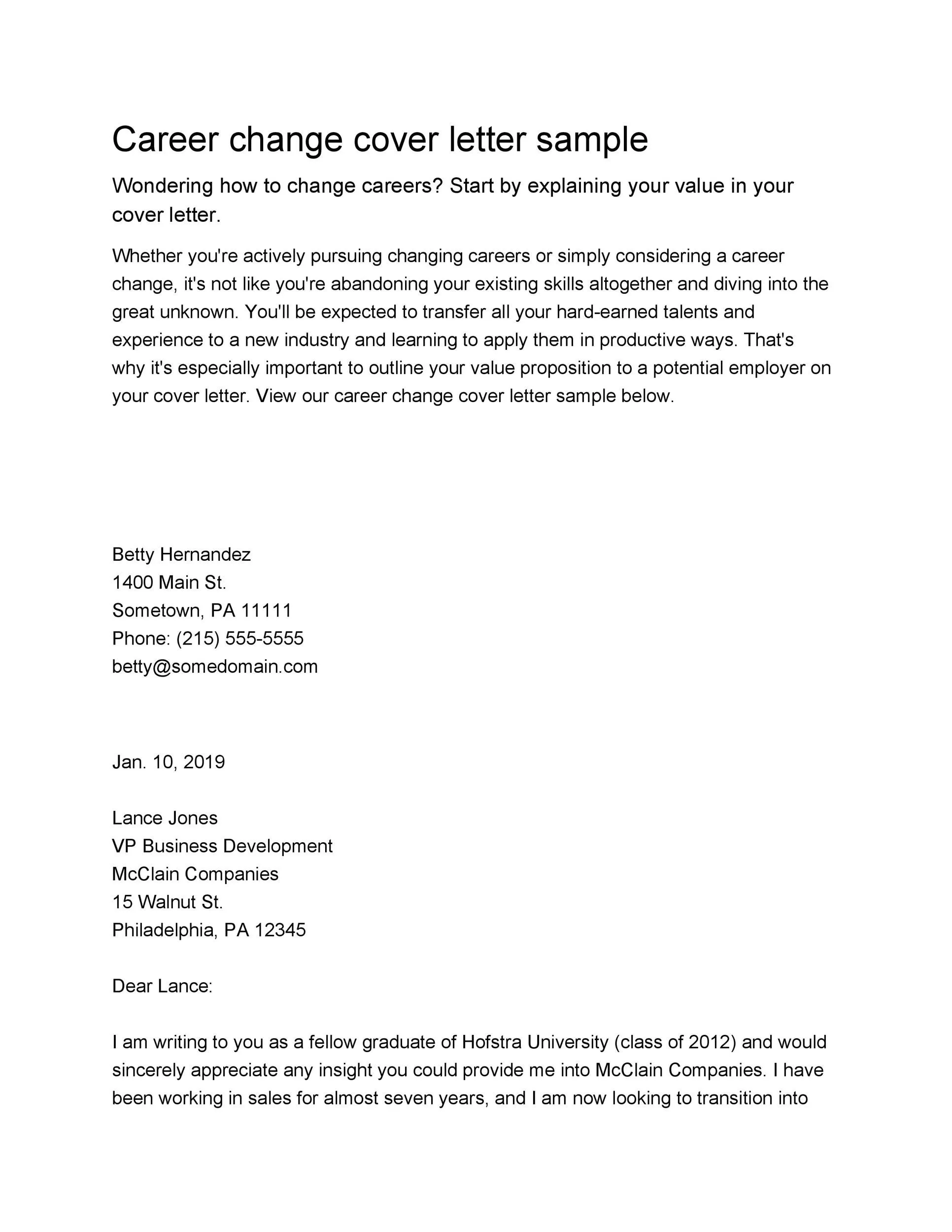
Don’t shy away from addressing your career change directly. Acknowledge the shift and provide a concise explanation for your decision. This shows that you are transparent and confident in your choice. This is your opportunity to frame the career change as a strategic move that aligns with your personal and professional goals. Avoid vague or evasive language; instead, be clear and straightforward. The goal is to showcase your forward-thinking approach. A clear and honest explanation can help dispel any concerns the hiring manager might have about your transition. This can include your aspirations, or what you are looking to achieve, and why you choose this particular career path.
Explaining the Reason for Change
Providing a well-thought-out reason for your career change is essential. Are you seeking new challenges, a better work-life balance, or a more fulfilling career path? Explain the reasons behind your decision in a way that aligns with the new role and company. Frame your career change positively and demonstrate that you’ve carefully considered your options. Focus on the aspects of the new role that appeal to you and how your skills and experience align with the new goals. By explaining why you are making a change, you provide context for your career shift. This explanation will likely be a critical aspect of your potential interview; therefore, make sure to be honest, and show you are committed.
Presenting a Clear Career Goal
Clearly state your career goal in your cover letter. This should be aligned with the new role and company. Let the hiring manager know where you see yourself in the future and how this position fits into your long-term career aspirations. This shows you have direction and that you are committed to the industry. Expressing your career goals helps the hiring manager understand your motivations. It also shows that you have a plan. By showcasing your direction, you demonstrate the seriousness with which you approach your career. Provide a clear vision of where you want to be in the future. This shows your commitment and determination for your future.
Formatting for Maximum Readability
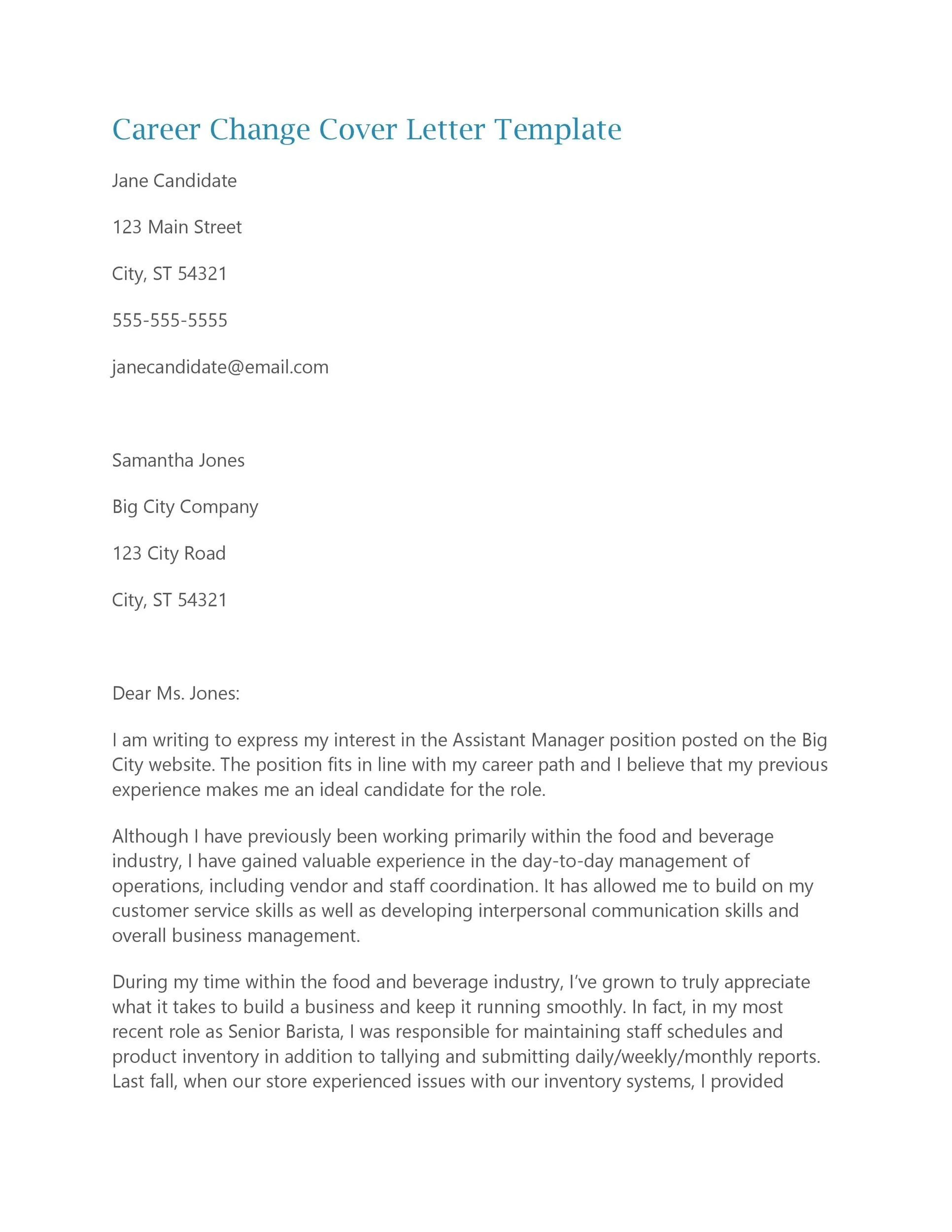
Use a clear and professional format for your cover letter. Choose a readable font, such as Arial or Times New Roman, and use appropriate font sizes. Keep the paragraphs short and concise, with ample white space to make it easy to read. Use bullet points to highlight key skills and achievements. A well-formatted cover letter is easier to read and demonstrates your attention to detail. The visual presentation of your cover letter impacts the first impression. Use clear headings and subheadings. Maintain a consistent style throughout the document to create a polished and professional appearance. The formatting of your cover letter shows professionalism, care, and thoughtfulness, which is critical for a career change.
Structuring Your Cover Letter
Structure your cover letter logically. Start with a strong opening that grabs the reader’s attention and states the purpose of your letter. The body should highlight your skills, experiences, and how they align with the job requirements. End with a call to action, such as requesting an interview or expressing your eagerness to learn more. A well-structured cover letter guides the reader through your qualifications. Ensure that the cover letter flows naturally. Keep your information clear, relevant, and easy to understand. Good structure will help the hiring manager easily understand your goals and qualifications.
Choosing the Right Tone
Choose a professional and confident tone. Avoid sounding desperate or apologetic about your career change. Instead, focus on your positive attributes and the value you bring. Demonstrate your enthusiasm and excitement for the new opportunity. Your tone should convey a positive and professional attitude. Your tone should reflect your confidence in your skills and your enthusiasm for the new role. Maintain a professional, yet personable tone, to ensure that your message is well-received.
Emphasizing Enthusiasm
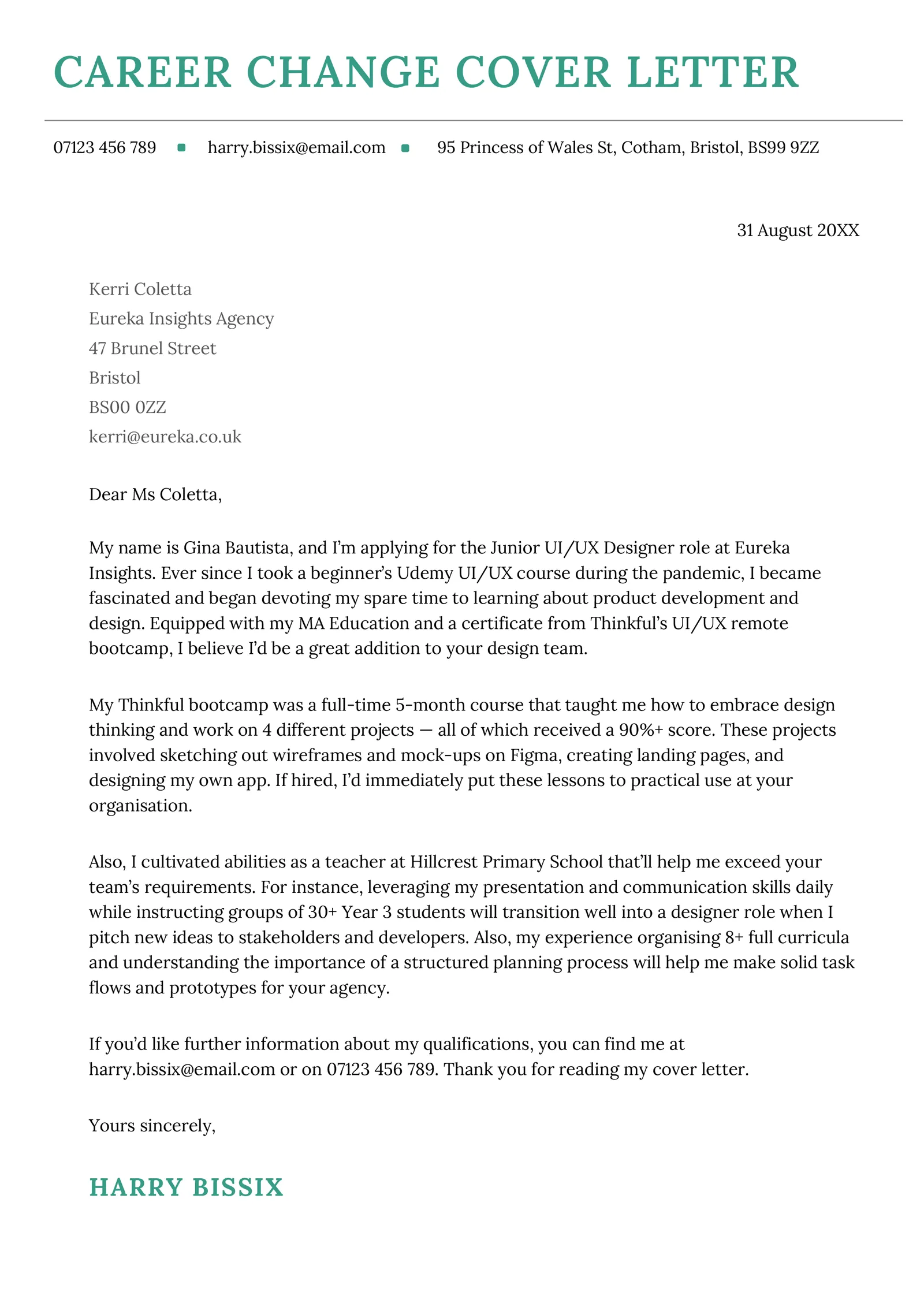
Your cover letter should demonstrate your enthusiasm for the job and the company. Show that you’ve researched the company and are genuinely interested in the opportunity. Mention specific aspects of the job or company that appeal to you. Enthusiasm is contagious and can make you stand out from other applicants. Expressing your enthusiasm for the role sets a positive tone, and indicates your eagerness to contribute. Demonstrate your commitment to the new position and to the new company with sincerity and commitment.
Proofreading and Editing for Perfection
Proofread and edit your cover letter carefully before submitting it. Check for grammar, spelling, and punctuation errors. Errors can undermine your credibility and detract from your message. Pay close attention to detail to ensure your cover letter is polished and professional. Errors can hurt your chances. Take the time to proofread and edit your document, and then ask someone else to review it. A second pair of eyes can catch mistakes that you might miss.
Checking for Grammar and Spelling Errors
Thoroughly check your cover letter for grammatical and spelling errors. These errors can make you look unprofessional and may lead to your application being rejected. Use spell-check and grammar-check tools, but don’t rely on them completely. Proofread the document yourself and ask a friend or family member to review it as well. Eliminating errors demonstrates your attention to detail. Errors can also make it difficult for the hiring manager to focus on the points you are making. Your attention to detail is just as important as what you write.
Seeking Feedback from Others
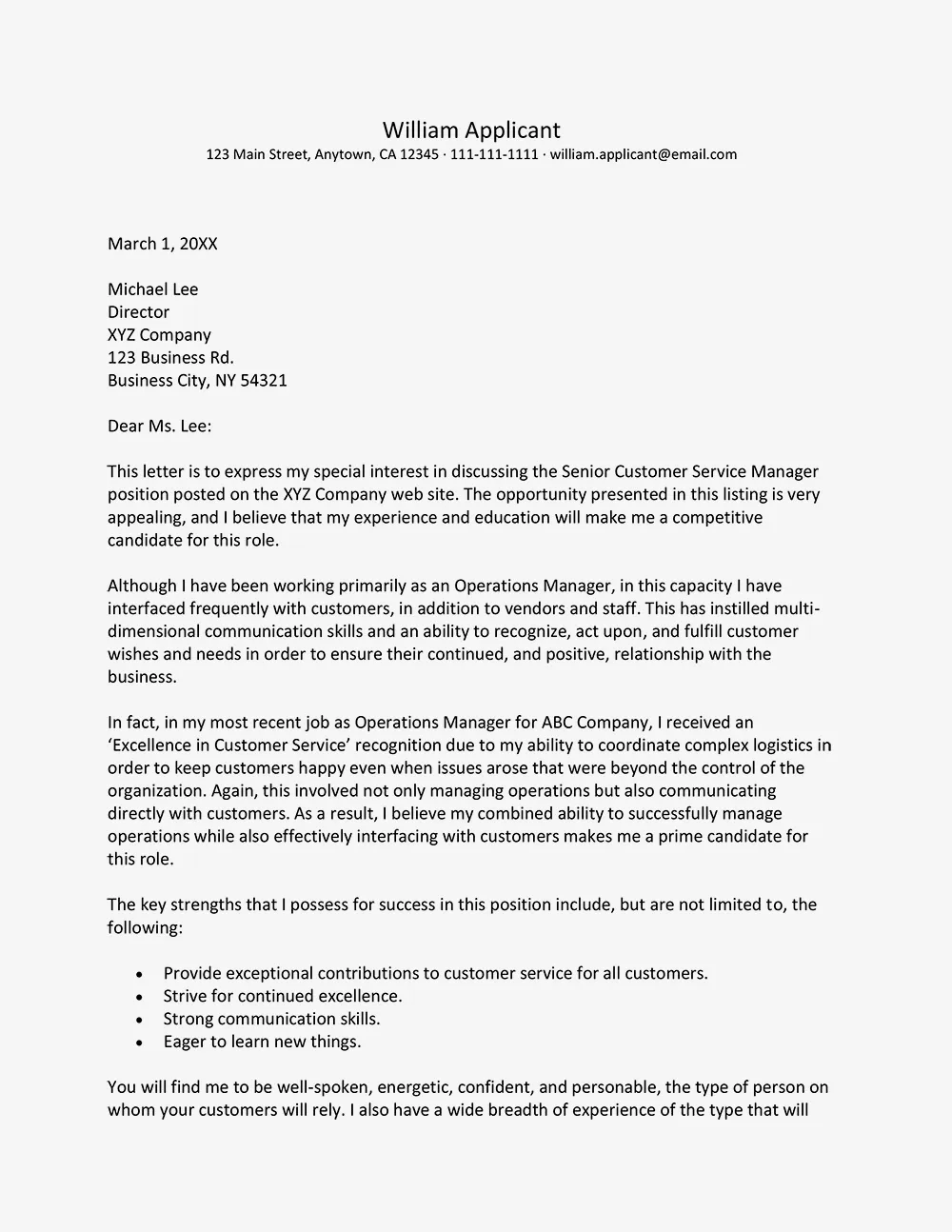
Ask for feedback on your cover letter from trusted friends, family members, or career counselors. They can provide valuable insights and help you identify areas for improvement. Their feedback can help you refine your message and make it more effective. A fresh perspective can make your cover letter more persuasive and make it stand out. Seek feedback from people in your desired career field, if possible. Their expertise can significantly improve your cover letter.
